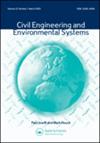Why are we not renovating more? An elaboration of the wicked problem of renovating apartment buildings
IF 1.1
3区 工程技术
Q3 ENGINEERING, CIVIL
引用次数: 1
Abstract
ABSTRACT A large proportion of apartment buildings in Europe were built between 1950 and 1990 and many of them are today in need of renovation due to inherently poor quality of design, a lack of subsequent maintenance and the present-day imperative of energy-efficiency. The limited extent of renovation compared with new-build projects suggests that developers find renovation unattractive. The purpose of this paper is to examine this reluctance by applying the theory of wicked problems. The paper discusses the wickedness of various aspects when doing feasibility assessments of renovation projects in a Swedish context, such as technical viability, financial viability, and environmental performance. The results show that most of these aspects are wicked and that attempts to manage the wickedness of renovation require both skill and knowledge, not to inflict harmful effects. For instance, it is necessary to do case-by-case assessments to determine if renovation is feasible. When planning for the renovation of several apartment buildings the complexity increases, because more stakeholders are involved. However, this also enables incremental approaches, continuous learning, and local adaptations. The insight that renovation is a wicked problem is important input for future research on renovation as well as for property owners when considering renovation.为什么我们不进行更多的翻新?对改造公寓大楼这一棘手问题的详细阐述
欧洲的大部分公寓建筑建于1950年至1990年之间,由于设计质量低劣,缺乏后续维护以及当今对能源效率的迫切要求,其中许多建筑今天需要翻新。与新建项目相比,翻新工程的规模有限,这表明开发商认为翻新工程没有吸引力。本文的目的是通过应用邪恶问题理论来检验这种不情愿。本文讨论了在瑞典背景下对改造项目进行可行性评估时的各个方面的弊端,如技术可行性、财务可行性和环境绩效。结果表明,这些方面中的大多数都是邪恶的,试图管理改造的邪恶需要技能和知识,而不是造成有害的影响。例如,有必要逐个进行评估,以确定改造是否可行。当规划几栋公寓楼的改造时,复杂性会增加,因为涉及到更多的利益相关者。然而,这也支持增量方法、持续学习和局部适应。装修是一个邪恶的问题,这是对未来装修研究的重要投入,也是业主在考虑装修时的重要投入。
本文章由计算机程序翻译,如有差异,请以英文原文为准。
求助全文
约1分钟内获得全文
求助全文
来源期刊

Civil Engineering and Environmental Systems
工程技术-工程:土木
CiteScore
3.30
自引率
16.70%
发文量
10
审稿时长
>12 weeks
期刊介绍:
Civil Engineering and Environmental Systems is devoted to the advancement of systems thinking and systems techniques throughout systems engineering, environmental engineering decision-making, and engineering management. We do this by publishing the practical applications and developments of "hard" and "soft" systems techniques and thinking.
Submissions that allow for better analysis of civil engineering and environmental systems might look at:
-Civil Engineering optimization
-Risk assessment in engineering
-Civil engineering decision analysis
-System identification in engineering
-Civil engineering numerical simulation
-Uncertainty modelling in engineering
-Qualitative modelling of complex engineering systems
 求助内容:
求助内容: 应助结果提醒方式:
应助结果提醒方式:


